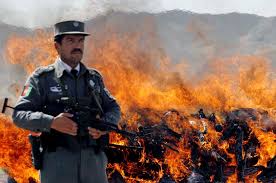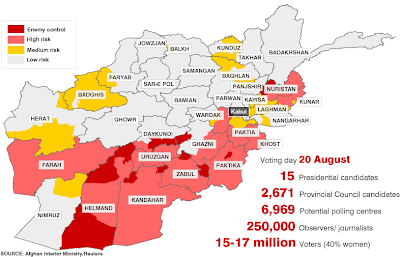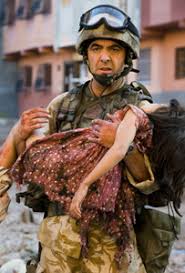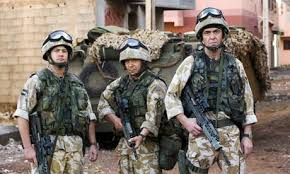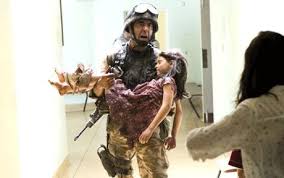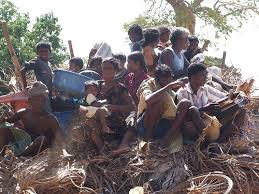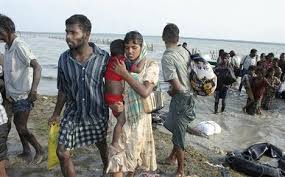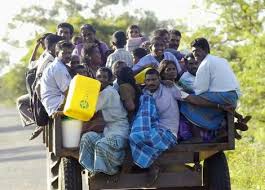I've been reading a book that has taken me back to our Peshawar days.
Storm Warning: Riding the Cross winds in the Pakistan-Afghanistan Borderland (Radcliffe Press 2013) by
Robin Brooke-Smith, who was Principle of Edwardes College Peshawar
The title comes from an Iqbal couplet which is cited by the head of Pakistani Intelligence Service the ISI in Peshawar:
"Oh Eagle do not fear the crosswinds / They are blowing to make you fly higher.'

Robin is a close friend. We overlapped in Peshawar, when I was working in a Drug rehabilitation project as Drug Advisor. I used to go round to the Principal's House to watch rugby on occasions, for a meal (I remember Scottish Country Dancing there) and even preached in the little chapel. Robin used to come round to our house in University Town to watch a video and get a way for a short while. Reading the book was to be transported back to those heady days.
I even appear in the
dramatis personae at the front of the book as
'CMS representative for South and Central Asia' and I know a number of the characters in the book, mainly from the church side: Bishop Manu (USPG Gen Sec), Humfrey Peters the Diocesan Secretary Cecil Williams (Principal of Edwardes High School and then Bishop), Rev Ghani Taib, Col. Tressler and Col. Khanwal Isaacs, the college bursar. We know each other, we have shared bread together. I am facebook friends with a number of them.
I also developed a great affection for the Principal's house staff: Ilyas the chowkidar, the driver Fayaz, Raj the mali, and of course Yousef the cook, who used to bring me sweet milky 'bed tea' when I stayed over during later visits. I also remember 'Jet' the mine-dog (we also had a ex-UN, failed-mine dog called Nicker, who we renamed 'Snicker'!)
Our son Tim had a term at Edwardes College School in the hot, humid summer of 1996 that Robin mentions. It was the first time he had worn a jacket and tie. The heat nearly did him in and helped him decide to go into boarding at Murree Christian School (MCS) in the cooler climate of the foothills of the Himalayas.
As Regional Director I participated in the Centenary Celebrations in April 2000, visiting Pakistan with my wife Rachel. I preached at the Centenary Service, but was also involved in some behind the scene diplomacy with Church of Pakistan leadership, which helped to change the story a little.
And for me the highlight was the contrast between The Band of the Irish Guards and the Khattak Dancers. It was as if a history of the Raj and the NWFP was being enacted before our very eyes. The Great Game seemed somehow very real...... and as yet unfinished.
I even wrote about it in a piece I did for my masters back in December 2000, the same year as the centenary celebrations:
-->
‘Carry on up
the Khyber’: A Strange Loop in
Peshawar.
Helping to
‘Change the Story’ in a situation of complexity and cultural diversity.
Robin has gone into much more detail and writes a fascinating mixture of personal and poetic reflections on college life, with a sharp grasp of the bigger picture - the wider geo-political context in which a drama was being played out in a college campus. It makes for fascinating reading.
But I thought I would quote three extracts from what I wrote, which echo and in some ways add another perspective to what Robin has written:
-->
Principal’s House, Edwardes’ College Peshawar, Easter Sunday
A week of celebrations is about to take place to mark the Centenary of
this old institution. I have been invited to represent CMS, which had a
significant role in the foundation of the College and give an address during
the Celebratory Service.
I arrived to learn that the Diocese has refused to allow the use of All Saints Church
in the Old City, next to the old Edwardes’ School (where the college started)
for the Celebration Service. In addition an advert has been placed in the local
Newspapers entitled APPEAL AND PROTEST, appealing to ‘worthy leaders’ on behalf
of the ‘parent body’ and ‘owners’ who had been ‘humiliated’ and deprived from
taking part in the centenary celebrations’. And signed: ‘The Moderator Bishop’s Commissary and the
Officers of the Diocese of Peshawar, Church of Pakistan’.
On Saturday, a press conference was held, resulting in a number of
published articles, which appeared in the local Urdu and English papers on
Easter Sunday. The Frontier Post declared ‘Edwardes College Principal’s
appointment termed illegal’. It went on:‘The church is sad that having taken
advantage of our vulnerability and innocence we have deliberately been deprived
from our rights and authority in the College. Given that the Church is the
legal owner and the initiator of the College, it is an injustice and an insult
that we have deliberately been kept out of the Centenary celebration’.
Edwardes’ College is a very significant college. One of the
staff quoted a Pathan friend as saying that ‘the NWFP has nothing to present
except Edwardes’ College’ and commended its Principal as a man of great
strength, honesty and integrity. Yet the church feels that they are not
involved in THEIR college and that a conspiracy is underway by the Government
to take the college away. What had caused such polarisation and ambiguity, and
extreme positioning of opposing forces ?
Culture
The NorthWest
Frontier Province (NWFP) is the wild-west of Pakistan, part of the untamed,
semi-autonomous FATA areas
(Federally Administered Tribal Areas). Pathan culture is one of the oldest democracies, with the ‘Shura’ (village elders) system, and a
strong tribal code ‘Paktoonwali’ with its emphasis on honour and shame,
relationship and revenge, hospitality
and hostility. Women are closely guarded and cocooned behind ‘chadar and chaar diwaar’ (cloth covering and 4 walls)
Steeped in history, this is where
Churchill as a war correspondent took pot-shots at Hill Tribeman (as recounted
in ‘My Early Life’) Untamed by the British Raj, it was a final outpost of the
Empire before the Durand Line, running through Afghanistan along the line of
the Oxus River (now the Amu Darya)
separating the ‘British Lion’ from the ‘Russian Bear’. This is where the
Great
Game
was played immortalised by Kipling’s Kim. Full of romanticism, adventure,
treachery. Boy’s Own country.
Since the Russian Invasion of
Afghanistan in 1979, Peshawar has been also been ‘deluged’ with over a million
Afghan Refugees. It has been a hot-bed of intrigue, drug smuggling (Afghanistan
is the World’s No. 1 producer of Opium) and Guns (Darra Village where any
weapon can be copied and Kalashnokovs sells for a few pounds). This is all
symbolised by ‘The Khyber Pass’, connecting Afghanistan and Pakistan, the scene
of the ‘Carry on’ film drama of the title.
Pakistan means ‘Land of the Pure’
yet it is reputedly the second most corrupt country in the world. It was set up
as an ideological and religious state in 1947, a homeland for the Muslims of
the Indian Subcontinent. Its flag of predominantly Islamic Green, has a strip
of white to symbolise space for minorities. But as they say in Pakistan in
various sayings or texts in urdu: ‘majority
has authority’ or ‘whoever has the
stick has the Buffalo’ (‘jyski lathi,
uski bayhns’)
-->
All’s well that ends well ?
The final Celebration was a grand
affair with a large colourful ‘Shamiana’
providing covering for hundreds of visitors in front of the New Centenary
Building. The Governor of NWFP was the chief guest, with the British High
Commissioner and Greek Ambassador, along with other Dignitaries. There were
apparently marksmen on the roof because of a bomb threat against the band,
which added to the drama of the occasion.
But the Church was present and represented by the Moderator and officers
of the Diocese. A degree of reconciliation had taken place.
This had been given public expression
and ‘face’ was saved.
The Pipes and Drums and Fifes of
the Irish Guards, marched on in their military splendour, wearing large black,
Bear Skins in spite of the heat – performing for half an hour. They were
followed by the Frontier Constabulary’s troupe of Khattack dancers in an
exciting display – like whirling dervishes with swords. It seemed like a
hundred years of history was enacted before our eyes. The British Raj, pomp and
ceremony, followed by the untamable excitement of Tribal Rule. ‘Carry on up the
Khyber’ indeed!
During the inevitable speeches,
the Principal recalled the college’s academic past. The Governor made his
opening remarks and a public promise of a donation to the college of 2 lakh
Rupees (£2,500). The Moderator was invited to pray and used the opportunity to
express the churches’ support. A scuffle of activity from the Commissary, a
word to the Master of ceremonies
and a whisper in the Moderator’s ear. Then he also announced a contribution of
exactly the same amount from the church. A proper balance of power had been restored!
A postscript
During the after-ceremony lunch,
there was a presentation of a British Council collection of English classic
books, ‘the Everyman Millenium Collection’, to the College Library. The British
Ambassador making the presentation gave the Principal a token book and
chuckled.
He had chosen -
Machievelli’s ‘the Prince’ !
I recommend the book. Buy a copy or get your local library to order a copy (I've been reading CMS's
Crowther Centre library copy). Read it and let it transport you to the wild (north) west, frontier town of Peshawar, in the mid-nineties before 9/11 and the subsequent war of terror.
There are more details of the book
first public response on Wordpress.
There will be a
book launch at Shrewsbury School Saturday 16th March





















